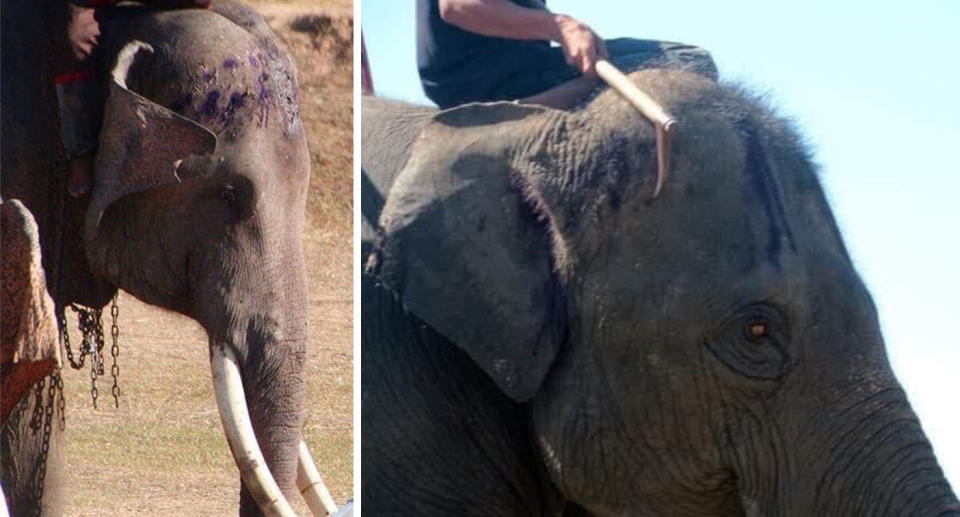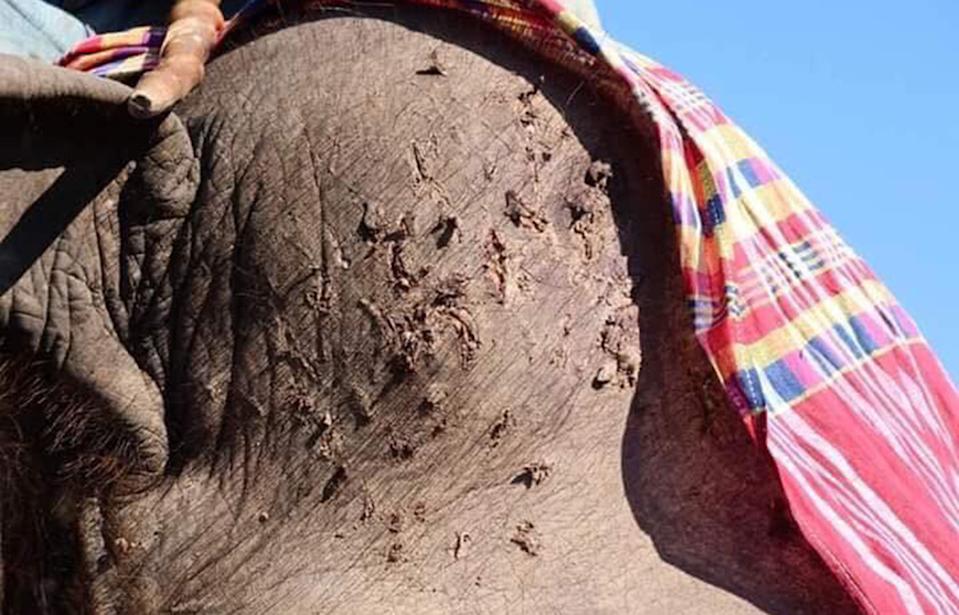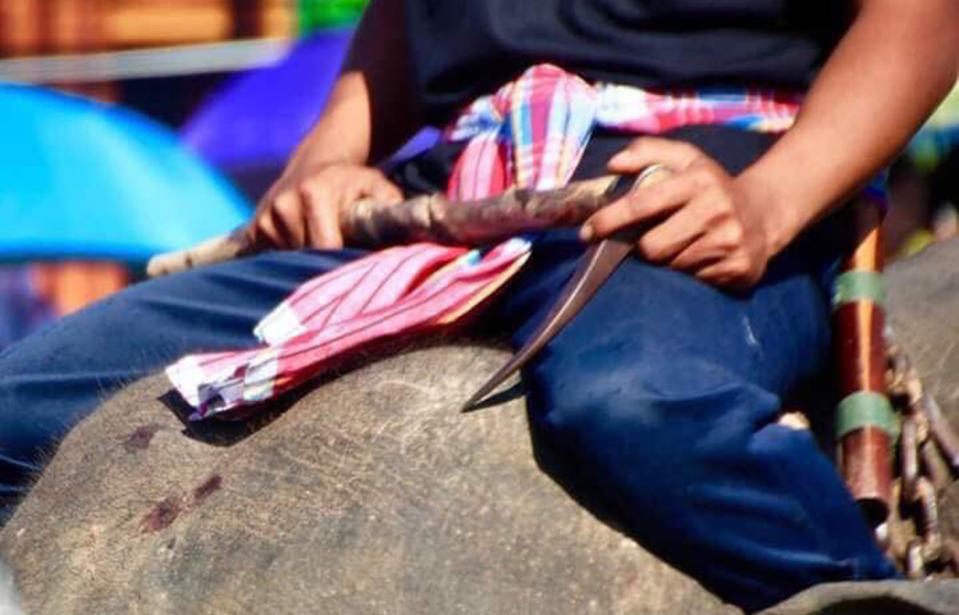Horrific photos serve as a wake-up call for tourists riding elephants in Thailand
WARNING - DISTRESSING IMAGES: Tourists heading to Thailand have been urged not to ride the elephants, after shocking pictures served as a stark reminder of the torture the animals are subjected to at some tourist attractions.
The images, believed to be be taken in Phuket, appear to show abused elephants mistreated by animal ride operators. The animals can be seen with horrific wounds on their heads and bodies, while being ridden by keepers holding sharp metal canes.
The shocking photos have circulated worldwide after they were shared on Twitter in April with the caption: “You can stop inhumanity tortured on elephants by stop riding an elephant!”

The widespread circulation shocked tourists and Thai travel authorities alike, who are now pleading with holidaymakers not to support the ride operators.
“We never support tourists riding the elephants,” a spokesperson from the Tourism Authority of Thailand (TAT) told Yahoo News Australia in an email.
Asked for their advice to travellers visiting Thailand, the spokesperson urged tourists: “Please don’t ride the elephants and don’t support this business.”
The travel authority added that the nation’s government agencies have been trying to combat the problem through a number of initiatives. These include policy-making, supporting research on wildlife, rehabilitating injured animals, and eradicating the illegal wild animal trade.

Independent and government organisations, as well as individuals, have also made strides in their efforts to help save the animals and preserve their habitat, according to the Thai tourism authority.
Acknowledging the elephant as the the country’s national symbol, TAT Governor Yuthasak Supasorn said the animals also presented a “special spiritual significance” with its deep associations with Buddhism and Hinduism.
“So, it must always be revered and well taken care of,” he wrote in a recent blog post on the tourism board’s website.
Thai businesses use elephants as ‘working animals’

There are currently about 3500 wild elephants and 4500 domesticated elephants in Thailand, according to Dr Patrapol Maneeorn, Wildlife Veterinarian of the Department of National Parks, Wildlife and Plant Conservation.
Wild elephants living in their natural habitat are classified as “wild animals” and protected by Thai law. Domesticated elephants are, however, classified as working animals just like other livestock.
“The relevant Thai government agencies are planning to remove elephants from the Working Animal list and give them special protective status in the near future, which might include new regulations on how owners can take care of and treat them,” Dr Maneeorn said in a recent interview with the TAT.
Thai citizens and tourists can help report suspicions of animal cruelty to the Wildlife First Aid Coordination Centre or through the Wildlife Friends Foundations Thailand website.
Do you have a story tip? Email: newsroomau@yahoonews.com.
You can also follow us on Facebook, download the Yahoo News app from iTunes or Google Play and stay up to date with the latest news with Yahoo’s daily newsletter. Sign up here.


